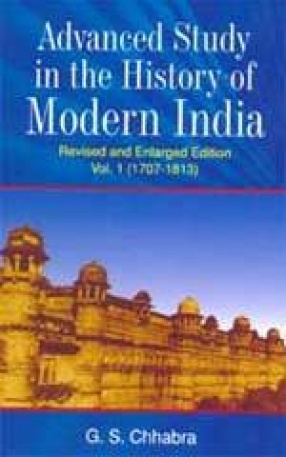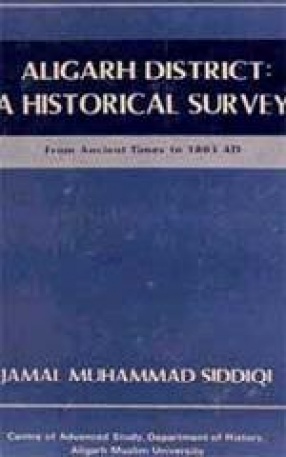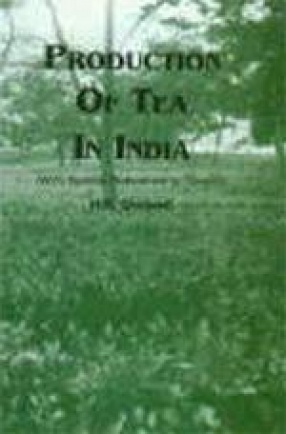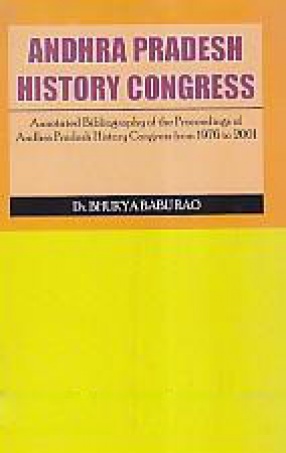The decline of the great Mughal Raj, the elimination of the foreign elements like the Portuguese, the Dutch, the French, and subjugation of the Indian Princes through series of wars, along with establishment of the British rule in India makes an interesting study. This volume deals with the period 1707 to 1813 during which time the British East India Company gradually transformed its trade holds in India into territorial and became a political power. It is an introduction to the next two volumes covering the periods 1813-1919 and 1920-1947 respectively. The readers will find the simplicity of style a great asset in the study of the history of this period. The period of history of Indian from 1813 to 1919 with which this second volume deals can be considered formative in many ways. For it is during this period that with the disappearance of the Maratha and the Sikh powers the way was opened for the unification of the whole country from Kashmir in the North up to the Indian Ocean in the South. The wars with Burma, Afghanistan, handling of the North West frontier tribes, the relations with Tibet, the Persian Gulf, Russia, and China etc. – all these established the direction that the future foreign policy of India was to adopt. The foundation of the Indian National Congress and that of the Muslim League laid down the direction in which the internal politics of the country was to evolve. Development in the field of education, finance, appearance of railways and other means of communication, the Charter Acts, the Indian councils Acts, Minto-Morley Reforms, the Government of Indian Act 1919 – all these indeed were path makers for the sort of the Indian polity that later evolved. Objectivity and the order in which the author puts forth his facts are not only informative but also fascinating. Third volume of Advanced Study in the history of Modern India starts with the first Non-cooperation Movement of Gandhi, wades through his Mass Civil Disobedience, Individual Civil Disobedience, and Quit India Movement, partition of the country and his unfortunate ultimate removal from the scene through the hands of an assassin. At the same time in the constitutional development it passes through the labour pains and birth of the Government of India Act 1935, the Indian Independence Act 1947, and the ultimate British departure from the country. The author discusses the Second World War and how it impacted the Indian politics, the rise of the demand for Pakistan and its ultimate realization. An interesting section of the book deals with important personalities of the time, their beliefs and their activities. All through the language used is simple and expression is lucid. His views on Gandhi, the Father of the Indian Nations, deserve a special attention.
Advanced Study in the History of Modern India (In 3 Volumes)
by G.S. Chhabra
$112.50
$125.00
In stock
Free & Quick Delivery Worldwide
All orders amounting to US$ 50 or more qualify for Free Delivery Worldwide. For orders less than US$ 50, we offer Standard Delivery at $14 per book.
ABOUT THE AUTHOR G.S. Chhabra
Born (1928) in a remote village of district Gujarat (now in Pakistan) G.S. Chhabra had schooling at different places in Pakitan, U.P. and Delhi. At the timeof partition of India his parents shifted permanently to Delhi where he had his college education. He obtained both his M.A. (1951) and Ph.D. (1955) degrees from the University of Punjab, India and joined Khalsa College, Jalandhar as a Lecturer (1954) and then as Head of the Pot-Graduate Department of History in Ramgarhia College, Phagwara (1956-63). After that he joined the university of Jammu where he headed its Post-Graduate Department of History for several years as Professor and was also the Dean of the Faculty of Social Sciences. He was the Chief Editor of the University Research Journal and contributed extensively to newspapers and research journals of repute. While in the University he also guided research and about a score of students of M.Phil. and Ph.D wrote their these under his supervision. Dr. Chhabra has travelled extensively both within the country and abroad and has had occasions to interact with scholars of repute the world over. declining several offers of position of status and influence within India and Abroad, about two years before his actual retirement (1988)Dr. Chhabra started leading a smimple retired life from the outside world, but internally he busies in an intensive research more than ever. initially he wrote on his findings for some related journals, but now he writes only for his own clarity and understanding. the matter ready with him may get published some time during his lifetime or after. His subject of study mainly is the human psyche, its limitations and the way to get over them. He has written commentaries on scriptural literature. In his retired life Dr. Chhabra divides his time between New Delhi and U.S.A.
reviews
0 in total
Review by Anonymous
Be the first to review “Advanced Study in the History of Modern India (In 3 Volumes)” Cancel reply
You must be logged in to post a review.
Bibliographic information
Title
Advanced Study in the History of Modern India (In 3 Volumes)
Author
Edition
Revised & Enlar
Publisher
ISBN
8189093053
Length
x+399p.; x+681p.; x+268p., Notes; Bibliography; Index; 23cm.
Subjects





There are no reviews yet.